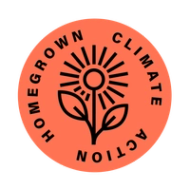Case Studies
One of the key objectives of the project is to develop a number of replicable composting models for a city. Composting isn’t a ‘one size fits all’ process – each context, whether that be household, business or community group, requires a different approach that is right for them. Below are five Case Studies from phase 1 of the project.
Surplus Food & Rat Proof Systems
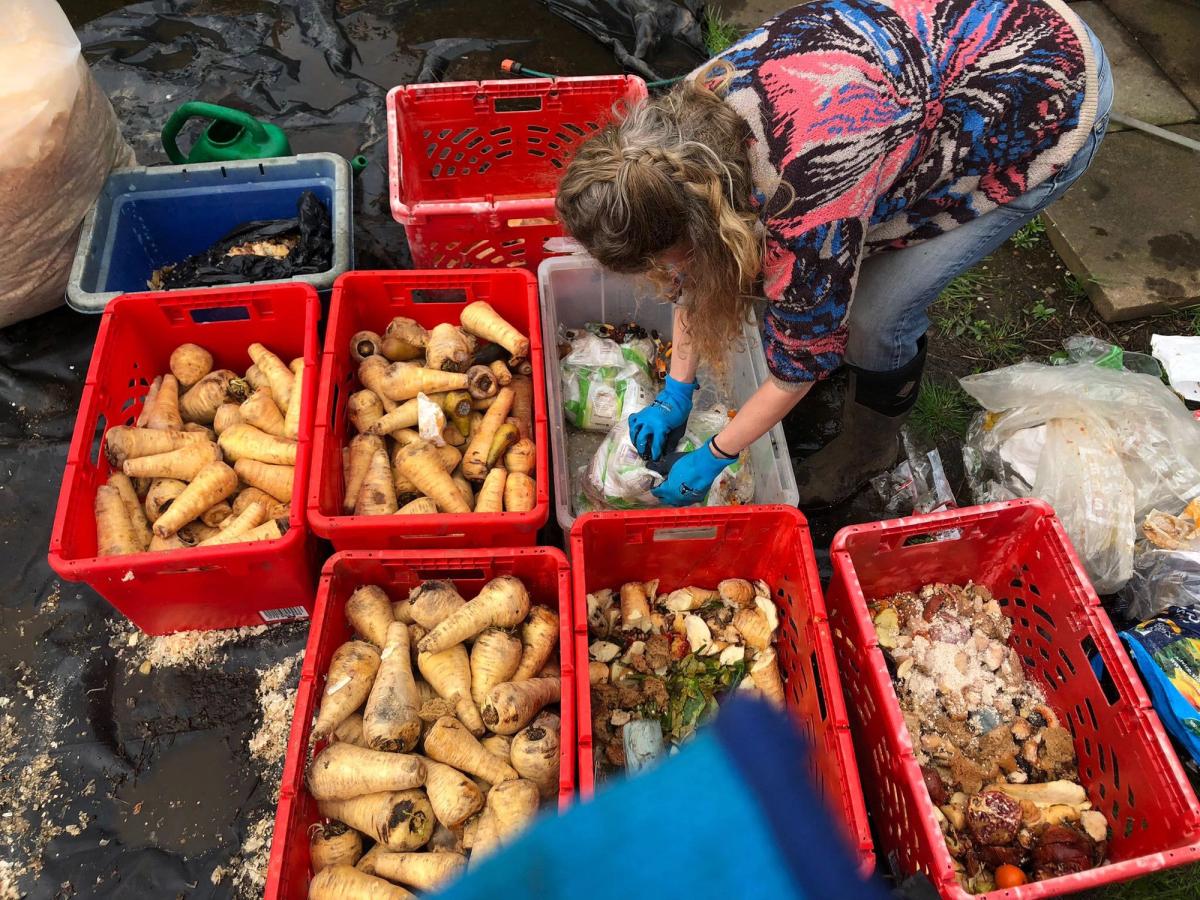
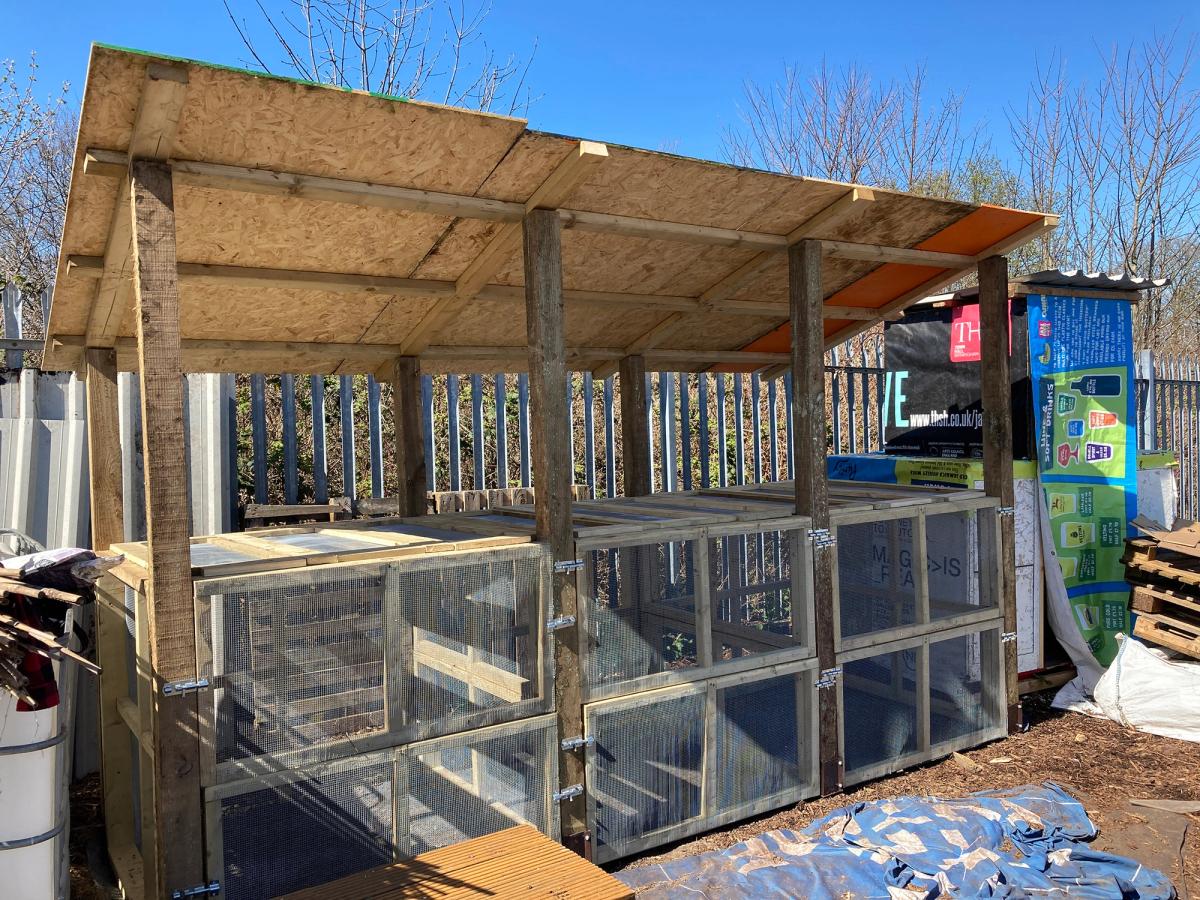
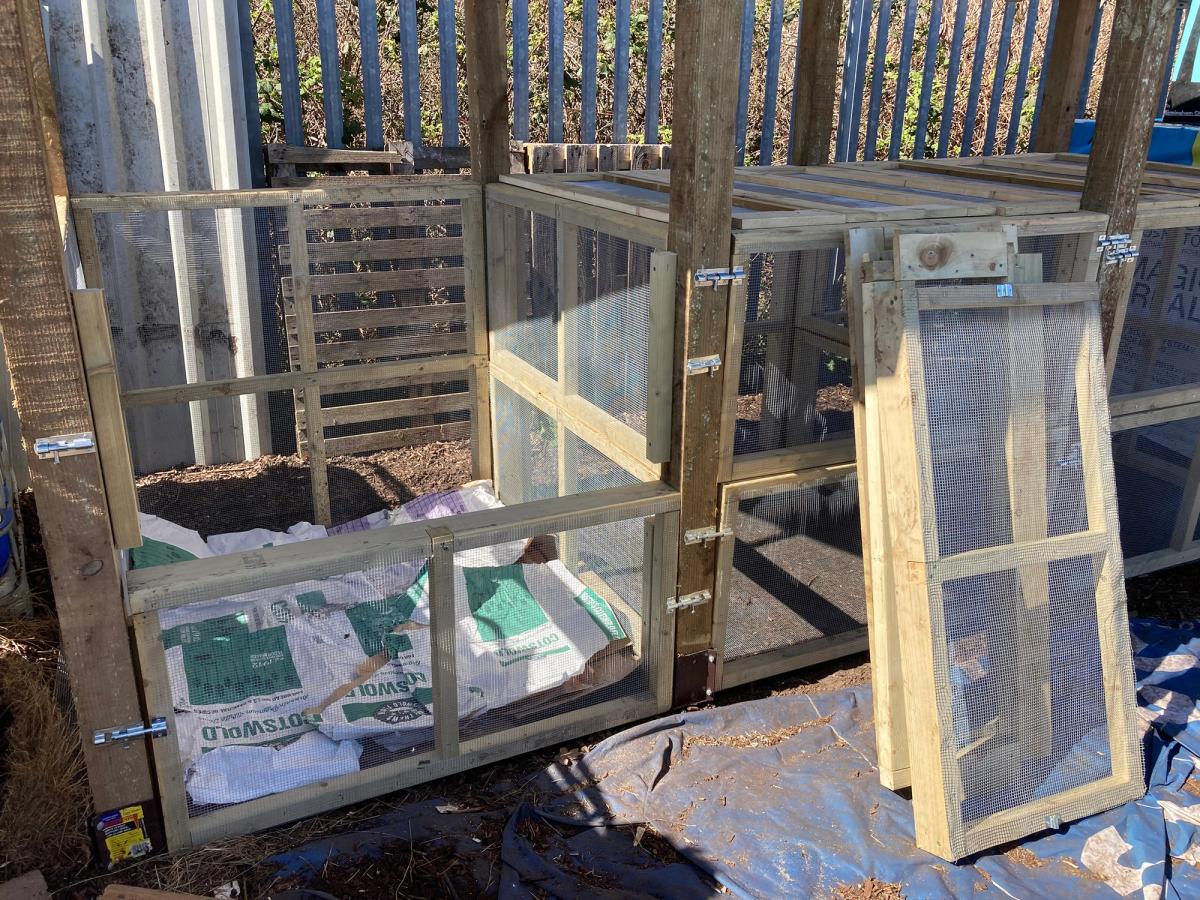
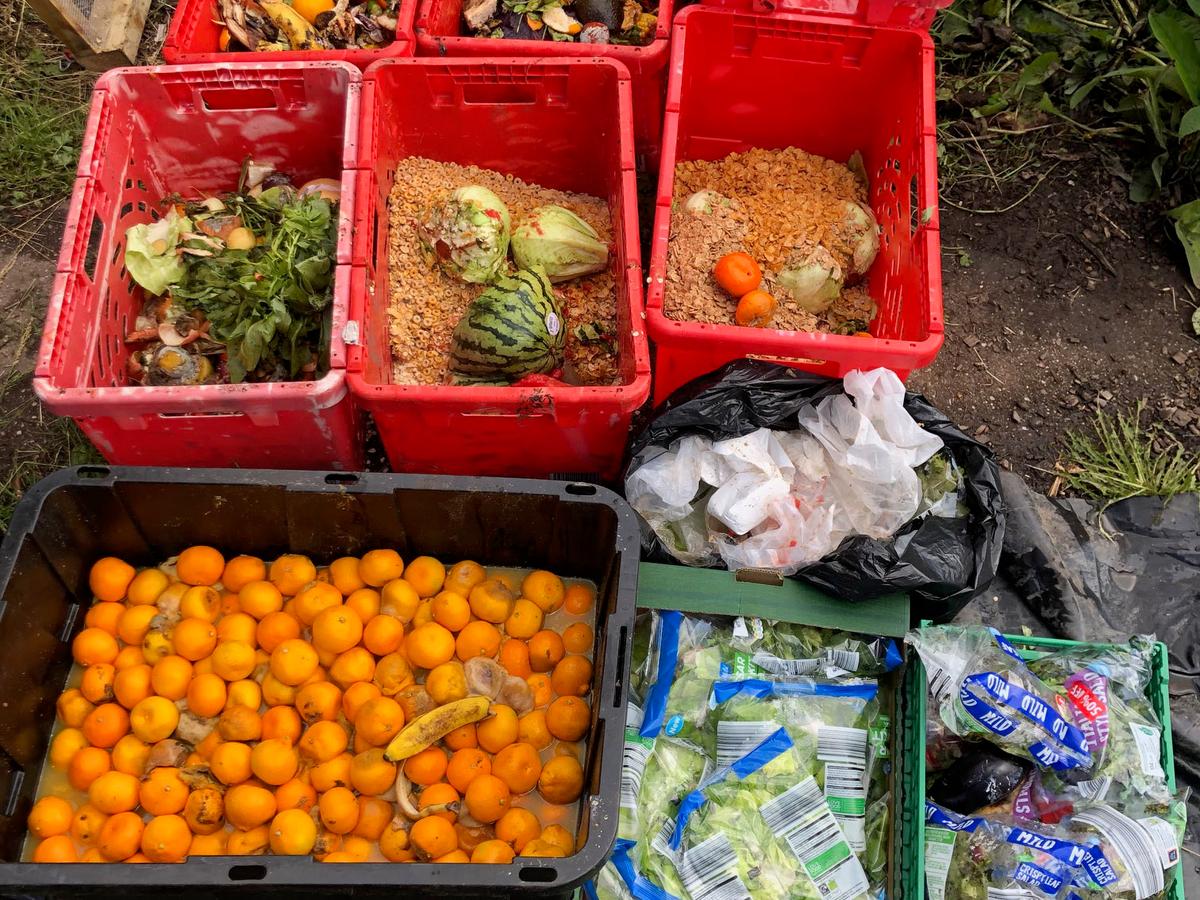
Incredible Surplus intercept an enormous amount of surplus food from supermarkets that they distribute on a pay-as-you-feel basis. Unfortunately, they can’t distribute everything and often end up with extremely large quantities of vegetables, fruit and bakery items that are passed their sell by date.
These can all be composted (rather than sent to landfill) on local allotments where there is space. Unfortunately in a large city rats are a big problem. Pete Ashton was commissioned to design and build a modular rat proof 3 bay system. Pete’s ingenious design is not only vermin proof, it is also responsive to how composting works (i.e. turning piles / interchangeable panels; doors opening / closing at the correct angles). It can also be assembled/deassembled easily if the compost bays needed to be moved. This 3-bay model has being rolled out across 5 of our project sites now and represents a rich contribution to composting knowledge!
Large third sector organisation: closed loop system
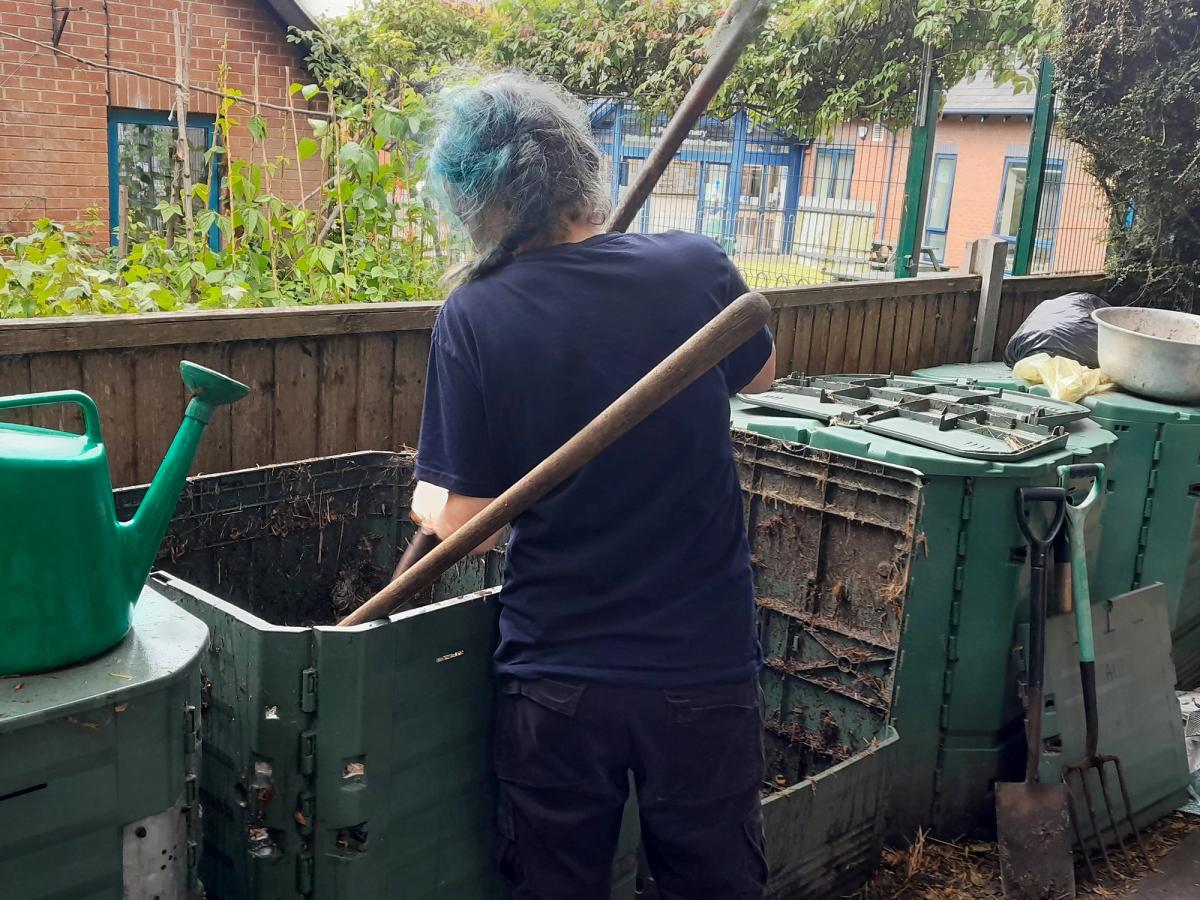
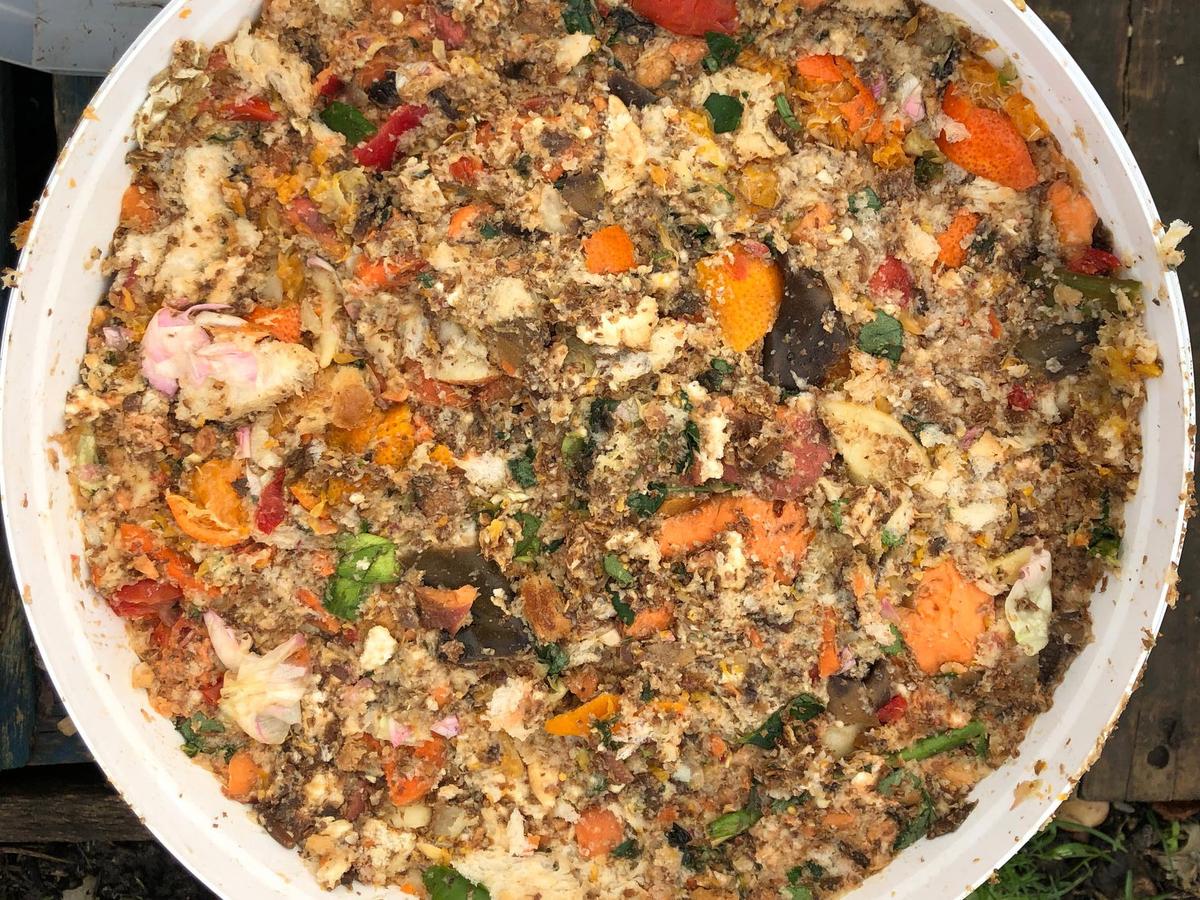
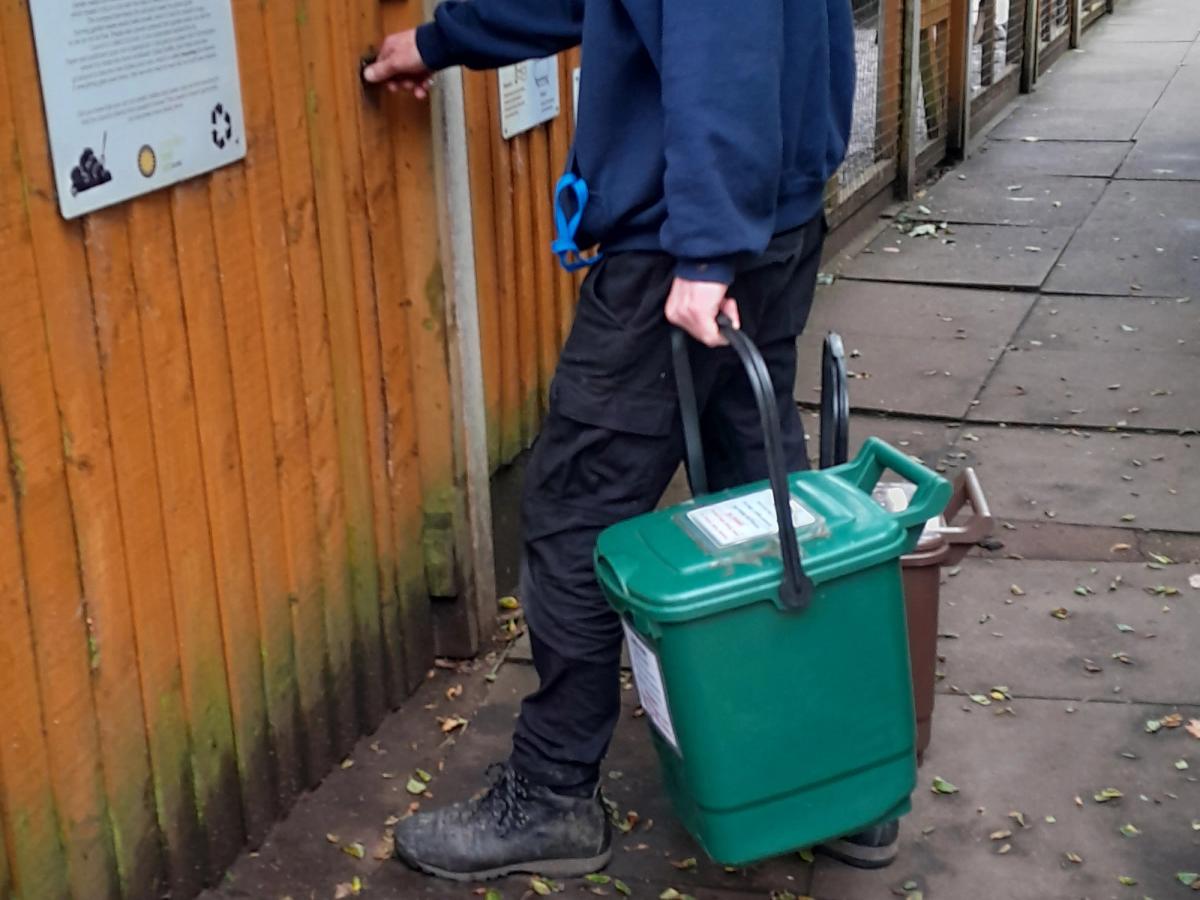
St Paul’s is a large third sector organisation based in Balsall Heath. Over the two year development grant, they have successfully created a closed loop composting system in their organisation – i.e. all food waste is now composted. This has involved getting all staff on board (at all levels of the organisation), streamlining how food waste is dealt with in their large on-site kitchens and setting up a composting area with a range of different processes.
Local Resources / Community Composting Scheme
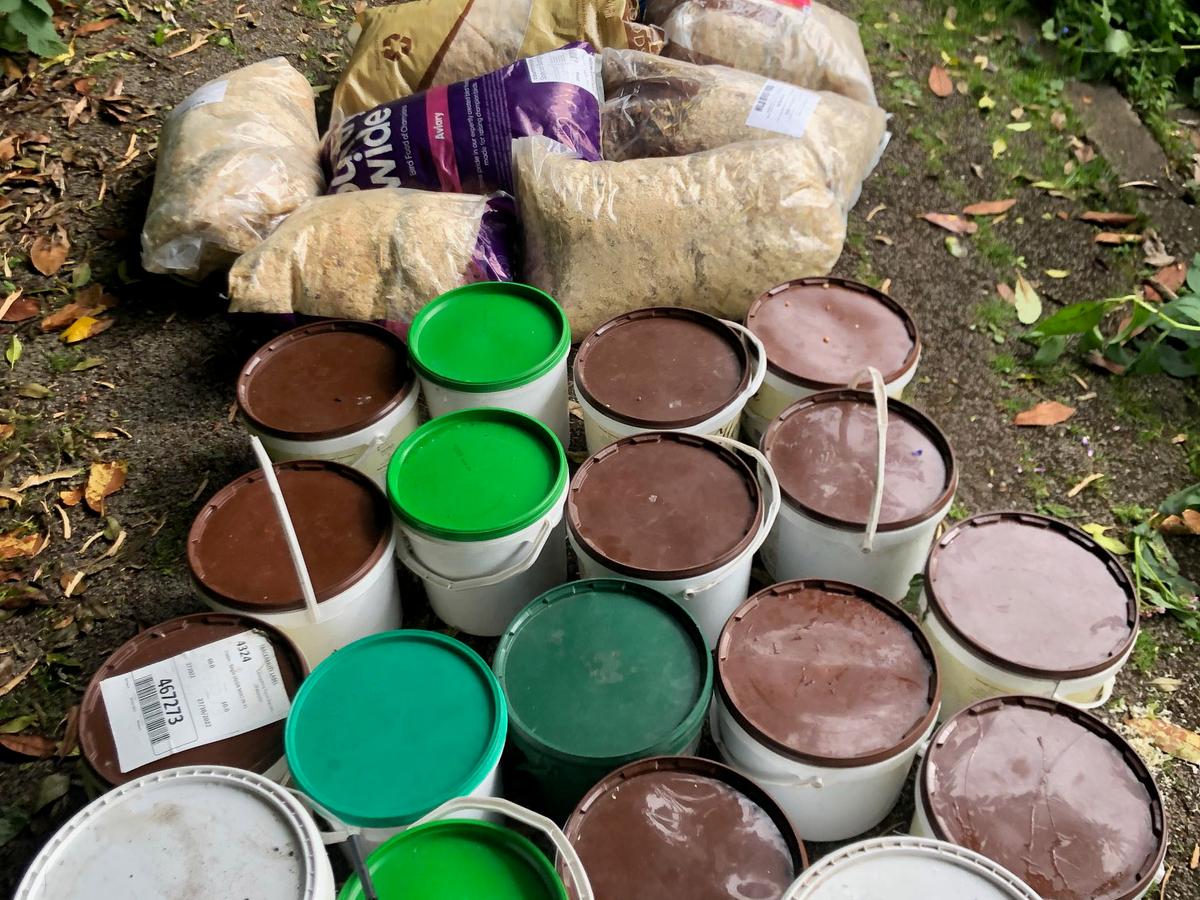
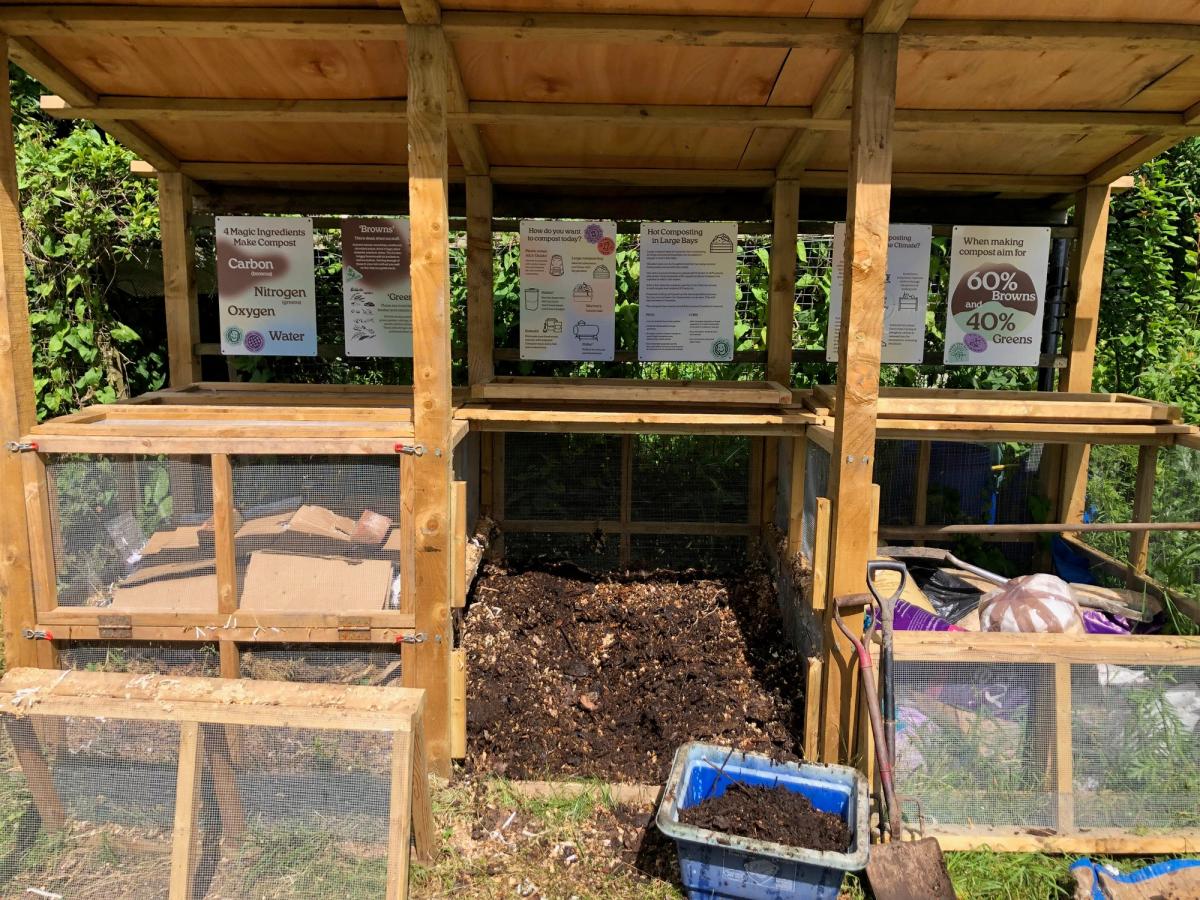
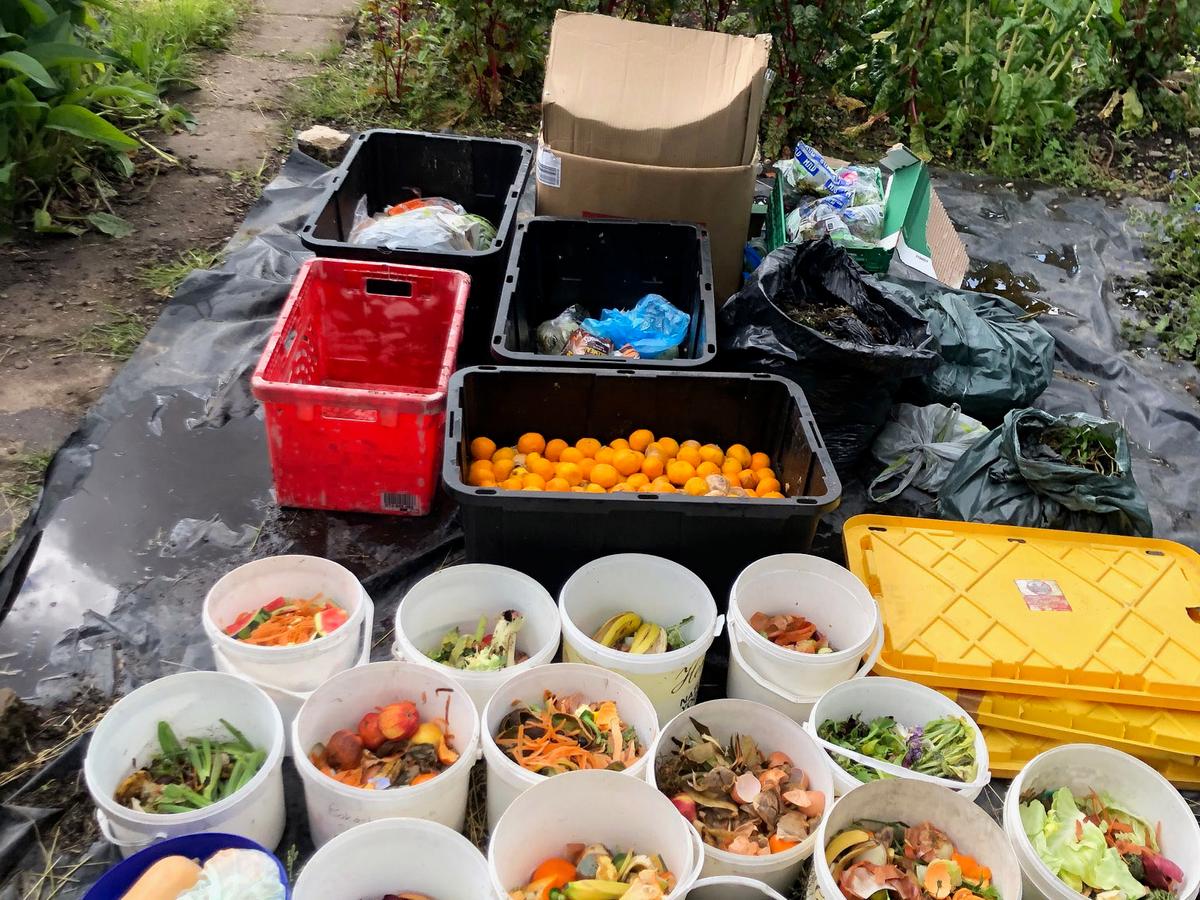
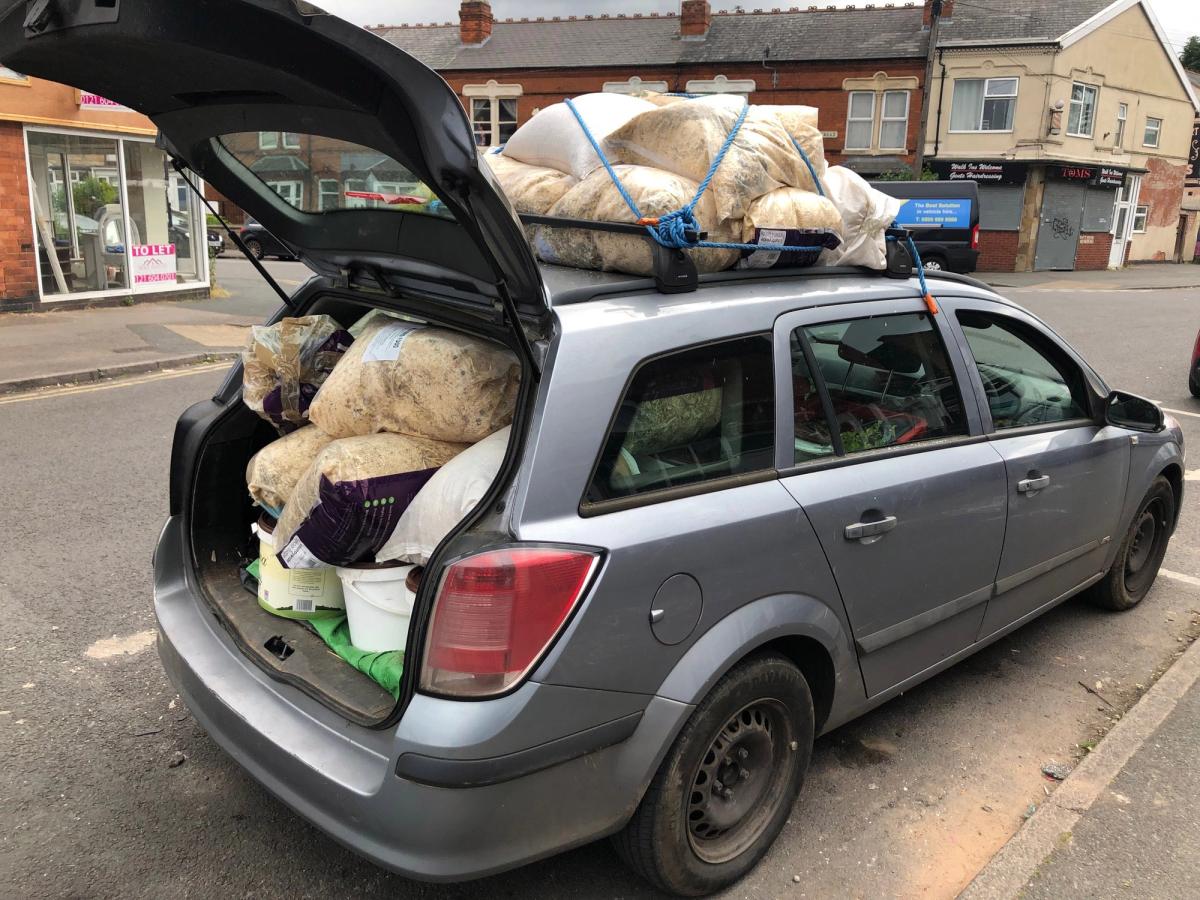
At our Uffculme allotments site in Kings Heath, we create our own compost using local food waste from households and resources from local businesses. This includes:
- Running a street level composting scheme. Coordinated through WhatsApp, local people leave their food waste out in a tub on a Monday morning; we pick this up and replace their tub.
- Collecting our ‘Browns’ from the local pet shop (sawdust, straw) and cardboard (for composting, no-dig beds) from the local sports shop.
Knowledge Bank: Exhibition & Signage
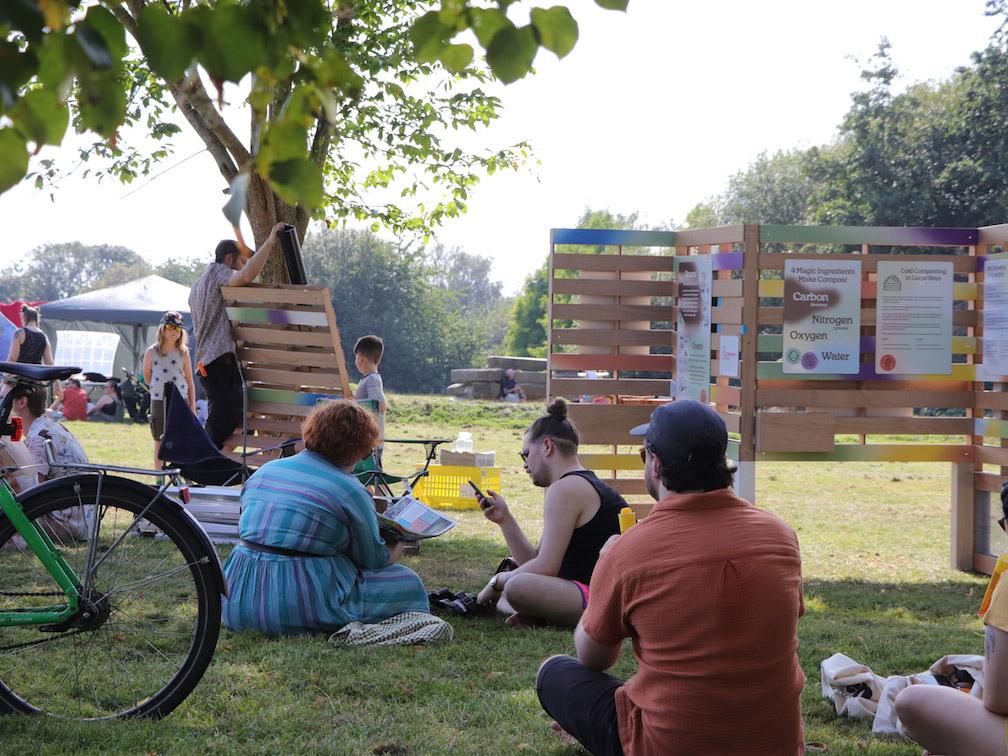
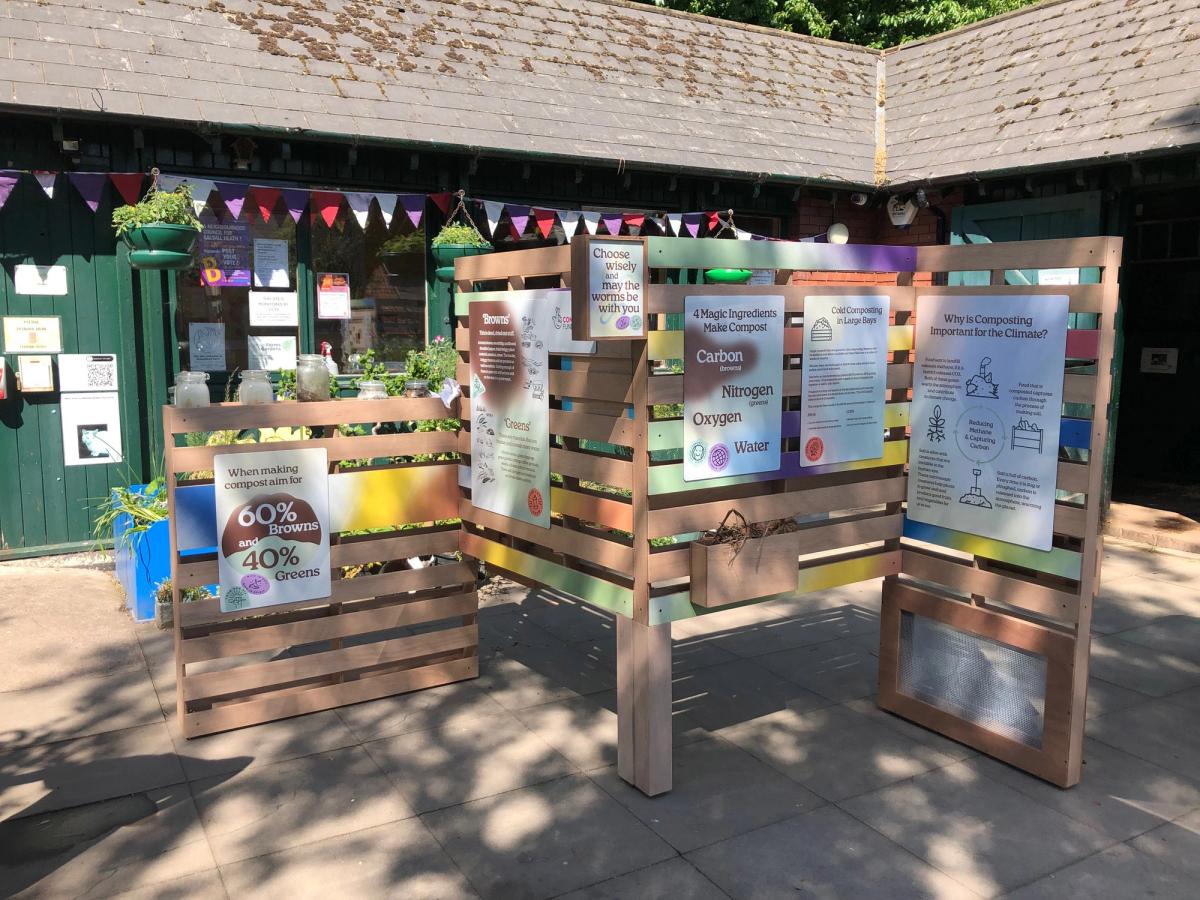
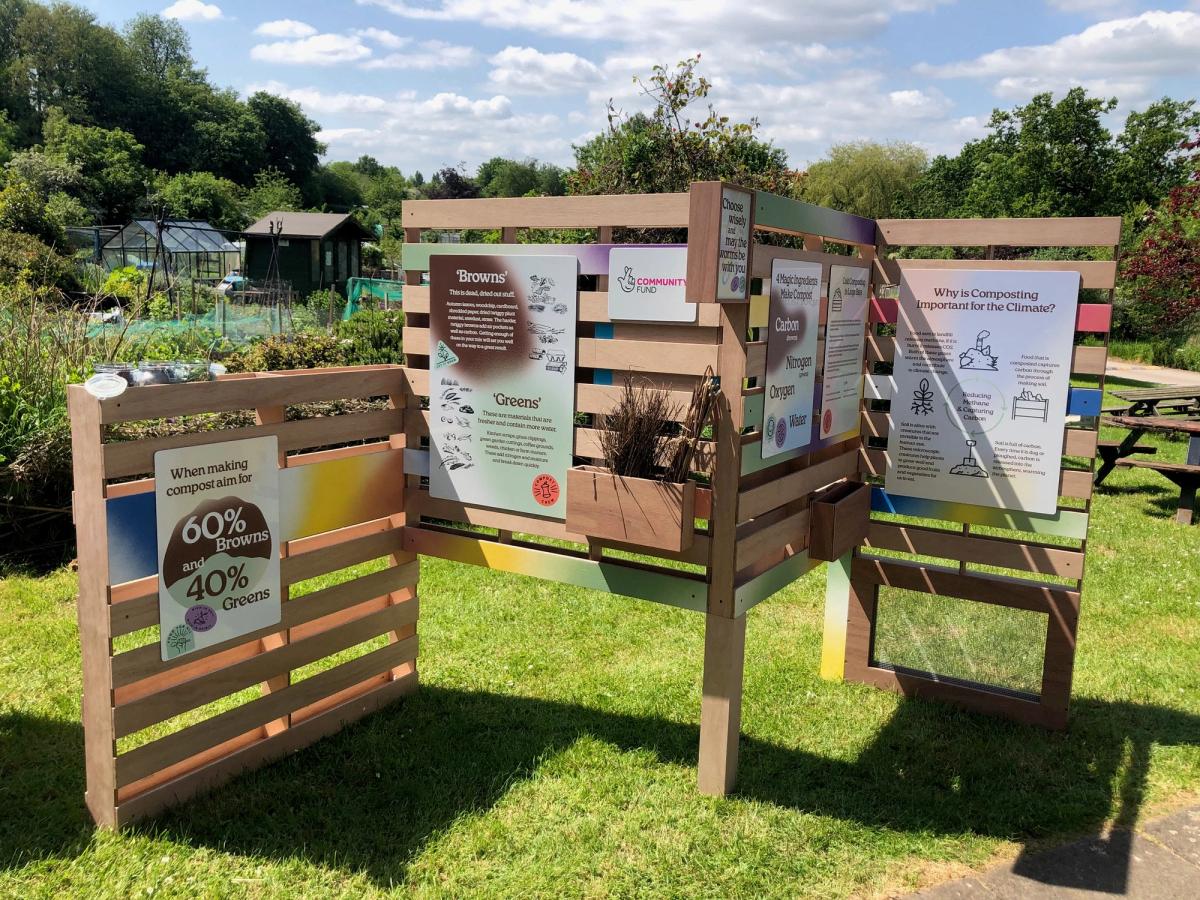
- During the development grant phase, we identified a lack of quality resources relating to composting.
- We developed a mobile compost exhibition and set of signage in response to this.
- The mobile compost exhibition is available for different events across the city. Its designed as a ‘one stop information shop’ about composting and composting processes.
- Digital files of the signs are available for free from us and we can help you with ordering your own set (ours are printed on aluminium).
Schools – Woodthorpe Primary Kings Heath
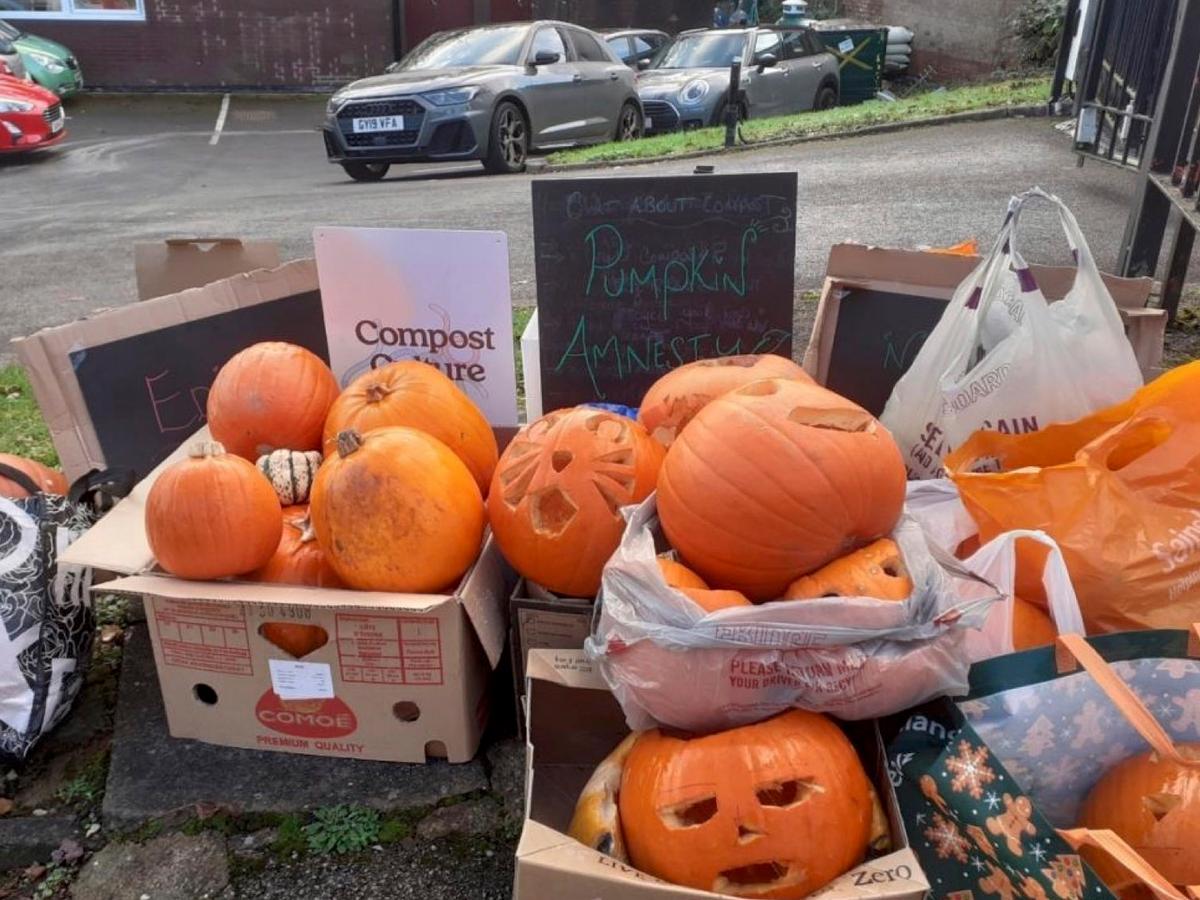
- School had a desire to introduce green waste bins in their school hall to collect food waste for composting.
- We introduced Bokashi - this meant that the large volumes of food waste coming from the school food hall could be stored in bins until ready for processing.
- We helped build pallet bins to increase their capacity, meaning they could compost all their waste on site.
- We also started a yearly pumpkin amnesty. Families were invited to bring their old Halloween pumpkins to the school. Pumpkins that were still edible went to the TAWS community café to be turned into delicious meals and those that weren’t edible were composted.
- This event is in its third year and helps to normalise composting.

